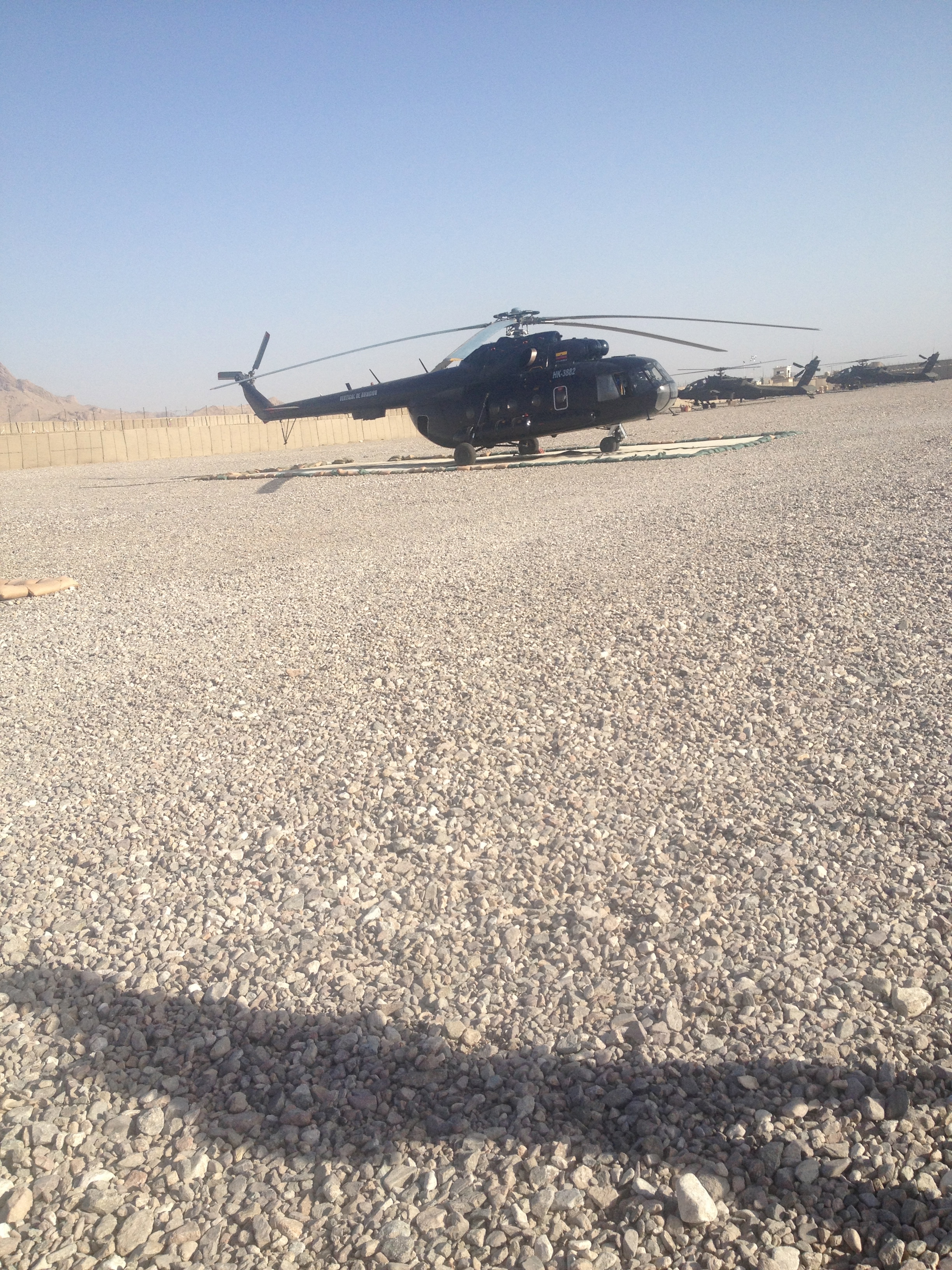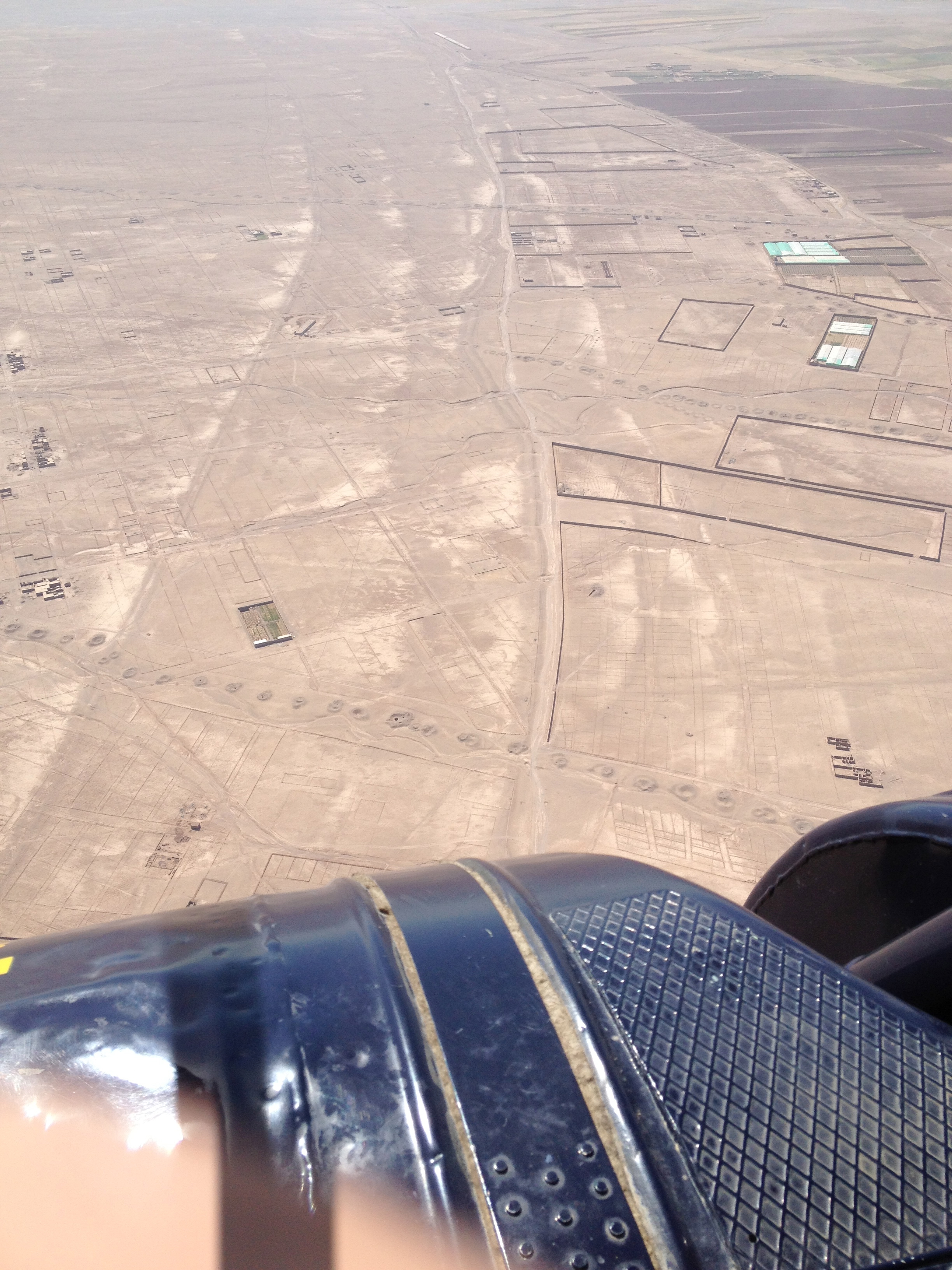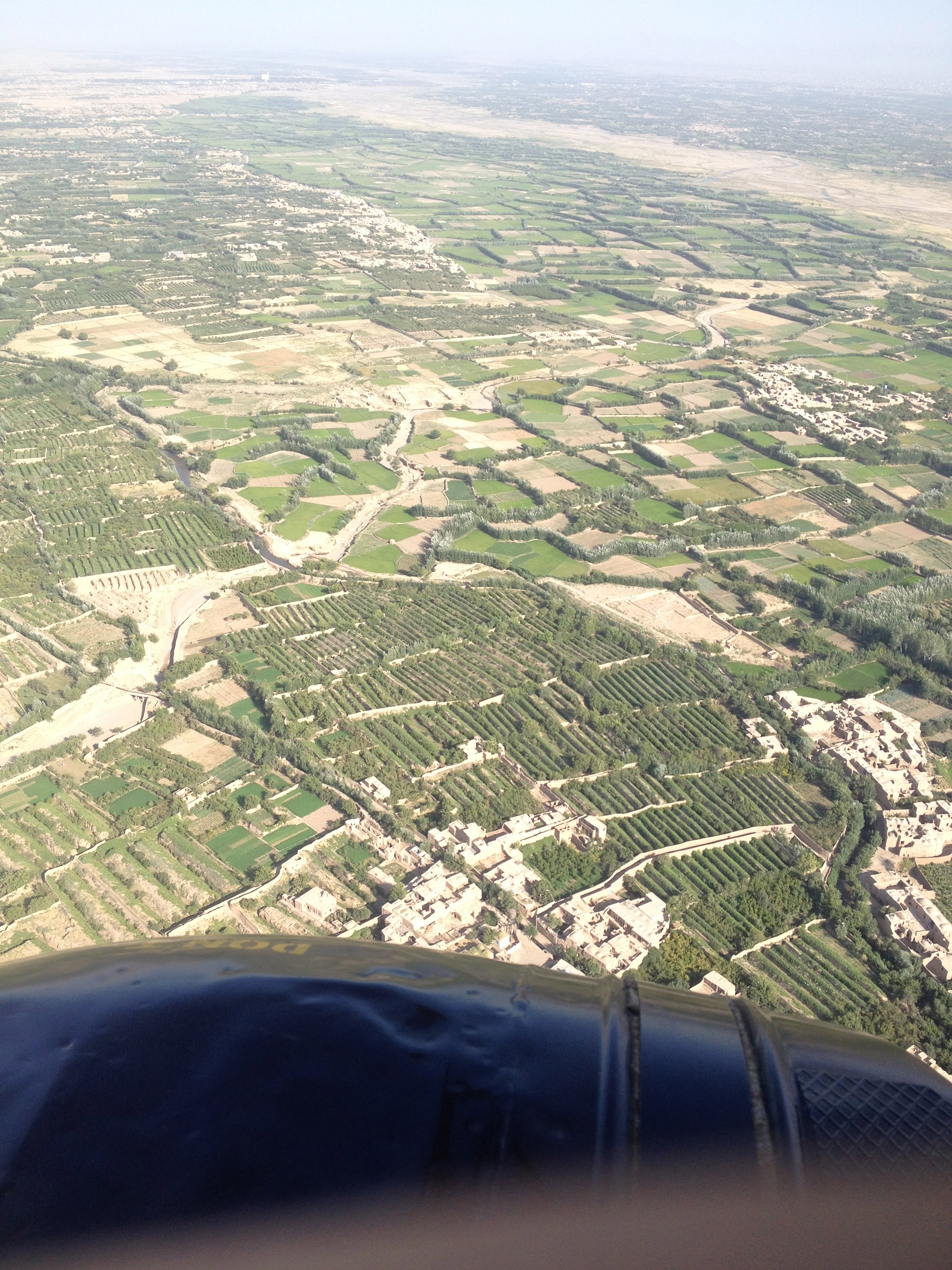My Rooskie Ride
After a week in Kandahar it took a good deal to get caught up. I am constantly amazed about the fact that despite working 10 hours every day except Friday when we work a mere 4, it is still close to impossible to stand still or move forward. Working 64 hour weeks there is still so much to do that you get behind. A perfect example of this is the fact that I haven't written anything in over a week. Today, however, is different. In many ways, today was more combat tourism but at the same time it was so much more. On this day, I went for another helicopter ride, this time we couldn't land.
Of the 30 active projects I have in my office, we are unable to step foot on more than half. Of the ones we do not have the ability for security reasons to physically visit, there is only one which we are unable to station a local national on for site visits. Running a multi-million dollar project sight-unseen should be much more scary than it is. It is a normal, day-to-day activity here. Is it ineffective? Perhaps. Is there a potential for fraud on the part of the contractor? Hell, yes. Is doing it anyway a problem? Indubitably, but the risks of putting people like me and even locals at the site are that high. Do I worry about the quality of construction there? That is my job. And I do not rest on the laurels of knowing that the standard of construction here is different from back home. That statement sucks. It's true, but it sucks. It bothers me greatly, but just like I can't keep up with the work going 64 hours a week on 7 different days I cannot do anything about it. Adapt and overcome.
Back to my travel for the day, we have two adjacent projects about an hour helicopter ride north of Camp Stone that we cannot go to for security reasons. One is being terminated for convenience of the government, the other is being downsized drastically. The main reason for both actions is a lack of water. We knew going in that water would be a problem yet the projects went off anyway. Finding water is a real problem in many of these projects. Counting off the top of my head no fewer than one-third of my active projects have some type of water issue, quantity, quality, or consumption. Water, water, nowhere, but not many drops to drink.
So, the plan was to fly up to the sites, circle them as low as we could as much as we could and return. It was a good plan. Worked well.
The helicopter is a former Soviet made bird, an MI-8. It was a very comfortable ride, or maybe I'm just becoming comfortable riding in aircraft. Either way, I had a window seat and it was a window seat like none I've ever had before. This window was open. Not just a hole in the window, the whole window was open. I touched the outside of the aircraft in the air. I stuck my hand out and waved at people I saw on the ground. No one waved back, but I waved. It's a Southern thing, right? I'm not sure if they didn't wave back because who expects to be waved to from a helicopter or if they didn't wave back because people in this country don't wave, but regardless, I waved at them.
The trip was uneventful and the site visit circling was, too. We got some great pictures of the site, but I also saw two things I'd wanted to see, and one I didn't expect to see.
I saw some caves. Fascinating to see caves from the air. I mentioned before that helicopters tend to fly lower than airplanes, you feel more connected with the ground making it easier to see features on the ground, like caves. And a kareez, I'd really wanted to see a kareez (pronounce like breeze). This is a sort of underground aqueduct. About every 20 meters there is an opening that goes down to the kareez. This was done partly for access and partly for ventilation. I'm sure it also helped to keep the kareez builders on track for where they were headed.
Back in the day when the majority of these were constructed collapses were commonplace. Typically a collapse would mean death for the kareez diggers. It was dirty, dark, dangerous digging. At one point the leaders decided that if your parents were kareez diggers then you would be a kareez digger. This enabled a continual supply of diggers, no need to search for volunteers.
I don't know that any of the kareezes I saw are operational or not, but just seeing them was a thrill, a real blast from the past. Yet another way the Afghan people found to overcome their harsh surroundings and make a life. It enabled them to make the third thing, that I didn't expect to see.
Huge plots alongside more huge plots of green, growing things. I expected to see sand and dirt everywhere, but there are giant tracts of green splitting the sandy soils. The biggest fields I saw were vineyards. Unlike every other vineyard I've ever seen, these have humps instead of stands for the vines to grow on. The material used to make the stands would be a premium, so instead they form big ridges and plant the vines so they can grow along the ground. In between each of these walled in plots of land runs a creek on the side of which is a trough. When they want to water the row of vines they dig out a scoop of dirt and allow the water to flow from the creek into the ditches and onto the vines. When they finish watering the rows of grapes they scoop out the next ditch and use that soil to dam back up the previous ditch until they have watered the whole vineyard.
Herat used to be known for its wine, presumably before alcohol was outlawed. Now it is still known for its grapes. I haven't gotten any yet, the locals I work with tell me they're picking them but they aren't quite ripe yet so we'll see when the rain starts.
So from an unexpected ride to an unexpected sight, the country still amazes me with its hidden treasures.


